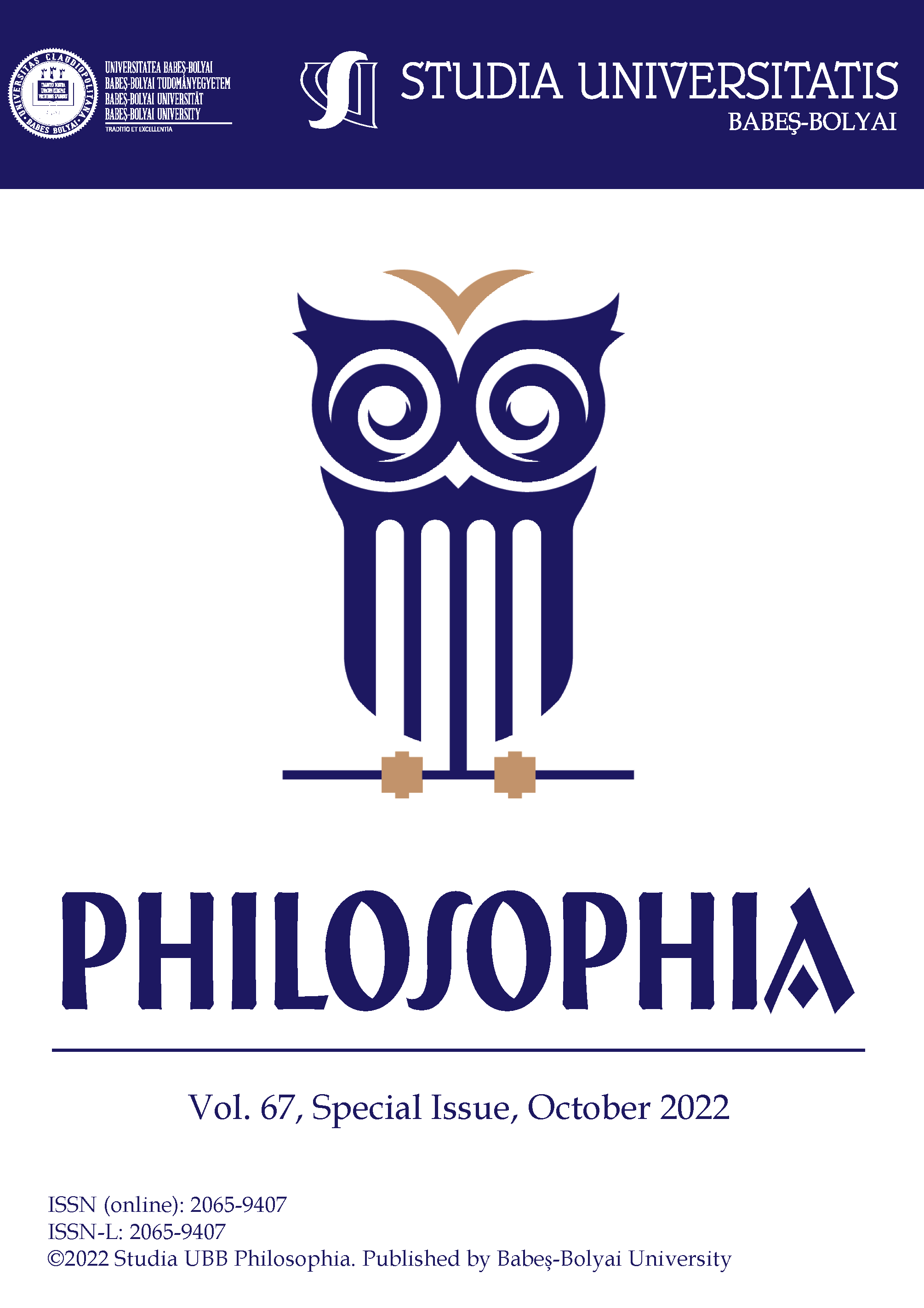SOME REMARKS CONCERNING THE “USE OF AN OBJECT”
DOI:
https://doi.org/10.24193/subbphil.2022.sp.iss.03Keywords:
Hegel, Buber, Winnicott, Heidegger, resistance, distance, relation, object, destructiveness, aggressivityAbstract
The aim of this paper is to propose some philosophical interpretations of Winnicott’s concept of the use of an object. These interpretations will be coming from Heidegger’s fundamental ontology and from Buber’s late philosophical anthropology. We also noticed that Winnicott’s theory of the use of an object was already in some way or another present in the Phenomenology of Spirit, in the fourth chapter, where consciousness is treated in terms of desire. Our main thesis is that after the subject encounters the resistance of the external world, its adversity and contrasting feature, the subject recognizes it as something independent and autonomous from the Self, so the subject is able therefore to set that being at a distance, enter into relation with it, and finally establish the world qua world. We are going also to draw lines between Winnicott’s perspective and the views of some phenomenological authors such as Eugen Fink, Merleau-Ponty or Marc Richir.
References
Abram, Jan, The Language of Winnicott, Karnac Books, 2017
Benjamin, Jessica, Beyond Doer and Done To: Recognition Theory, Intersubjectivity and the Third, Routledge, 2018
Benjamin, Jessica, The Bonds of Love: Psychoanalysis, Feminism and the Problem of Domination, Pantheon Books, 1988
Buber Agassi, Judith, Martin Buber on Psychology and Psychotherapy, Syracuse University Press, 1999
Buber, Martin, Between Man and Man, Routledge, 2004
Buber, Martin, I and Thou, Charles Scribner’s Sons, 1970
Buber, Martin, The Knowledge of Man, Harper&Row Publishers, 1965
Eugen Fink, Eugen, Play as Symbol of the World, Indiana University Press, 2016
Freud, Sigmund, The Standard Edition of the Complete Psychological Works of Sigmund Freud: Volume XII, The Hogarth Press, 1981
Freud, Sigmund, The Standard Edition of the Complete Psychological Works of Sigmund Freud: Volume XIX, The Hogarth Press, 1986
Hegel, G.W.F., Phenomenology of Spirit, Oxford University Press, 2004
Heidegger, Martin, Being and Time, Blackwell, 2001
Husserl, Edmund, Cartesian Meditations: An Introduction to Phenomenology, Martinus Nijhoff, 1977
Kant, Immanuel, Critique of Pure Reason, Cambridge University Press, 2000
Mahler, Margaret S., Pine, Fred, Bergman, Anni, The Psychological Birth of the Human Infant: Symbiosis and Individuation, Karnac Books, 2002
Merleau-Ponty, Maurice, Child Psychology and Pedagogy, Northwestern University Press, 2010
Merleau-Ponty, Maurice, The Visible and the Invisible, Northwestern University Press, 1968
Müller, Ulrich, I. M. Carpendale, Jeremy, Smith, Leslie, The Cambridge Companion to Piaget, Cambridge University Press, 2009
Richir, Marc, Phantasia, Imagination, Affectivité, Jerome Millon, 2004
Richir, Marc, Variations sur le Sublime et le Soi, Jerome Millon, 2010
Schutz, Alfred, Collected Papers I: The Problem of Social Reality, Martinus Nijhoff, 1962
Stern, Daniel N., The Interpersonal World of the Infant, Karnac Books, 1998
Winnicott, Donald Woods Babies and their Mothers, Da Capo Press, 1987
Winnicott, Donald Woods, Playing and Reality, Routledge, 2009
Winnicott, Donald Woods, Through Paediatrics to Psycho-Analysis, Tavistock Publications, 2003.
Downloads
Published
How to Cite
Issue
Section
License
Copyright (c) 2022 Studia Universitatis Babeș-Bolyai Philosophia

This work is licensed under a Creative Commons Attribution-NonCommercial-NoDerivatives 4.0 International License.





